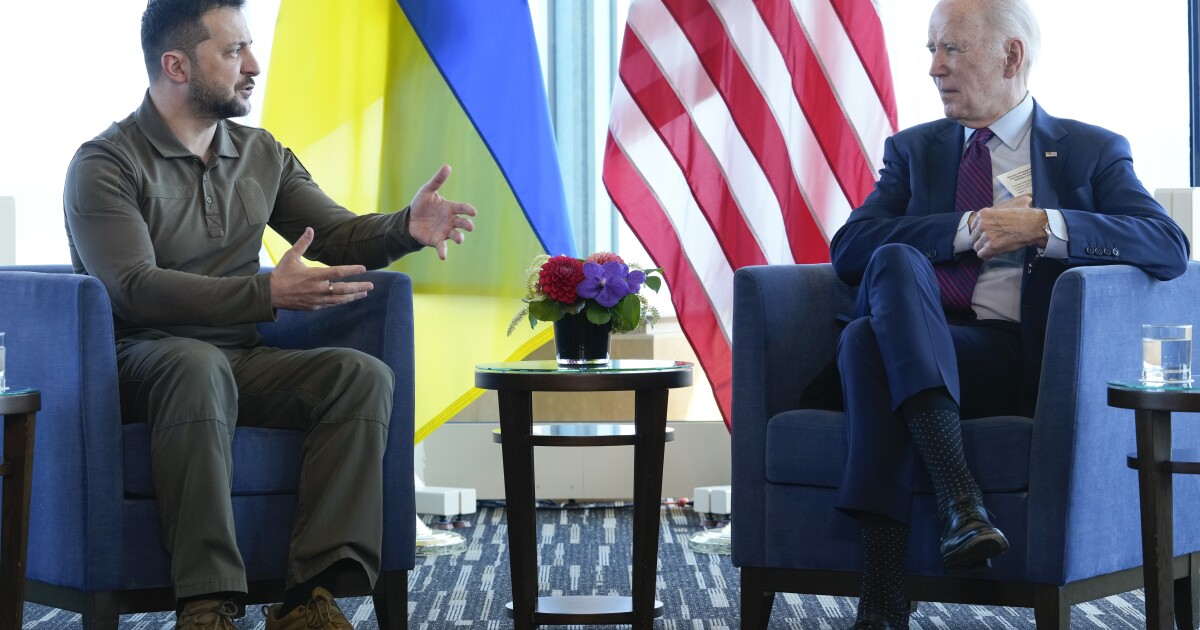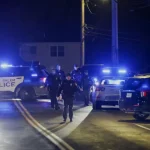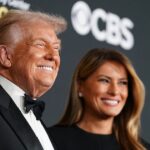

Ukrainian President Volodymyr Zelensky has disputed Russia‘s claim it has captured Bakhmut amid an eight-month battle for the city in eastern Ukraine, the longest and likely bloodiest of the conflict.
Zelensky was asked whether Bakhmut was “still in Ukraine’s hands” after Russia claimed the Russian paramilitary organization, the Wagner Group, had captured the city before his meeting with President Joe Biden on the sidelines of the Group of Seven leaders summit in Hiroshima, Japan.
LIBERALS BLAME REPUBLICANS, NOT BIDEN, FOR THEIR PURSUIT OF DEBT CEILING ‘PLAN B’
“I think no, but you have to — to understand that there is nothing,” the Ukrainian president told reporters. “They’ve destroyed everything. There are no buildings. It’s a pity. It’s tragedy.”
“But, for today, Bakhmut is only in our hearts. There is nothing on this place, so — just ground and — and a lot of dead Russians. But they came to us,” he said. “So that — our defenders in Bakhmut, they — they did strong work. They — and — and, of course, we appreciate them for their great job.
Zelensky’s comments initially caused confusion, but a spokesman later clarified “the president denied the capture of Bakhmut.”
Biden also announced a $375 million aid package to Ukraine that includes ammunition, artillery, and armored vehicles before Ukraine’s highly anticipated spring offensive, in addition to working with allies to “train Ukrainian pilots on a fourth-generation fighter aircraft like the F-16” and introducing more sanctions and export controls on Russia.
“Mr. President, what the people of Ukraine are defending, what you’ve achieved is a matter for the entire world to observe,” Biden told Zelensky. “They’re in awe of what you’ve done so far, really and truly. It’s incredible.”
“Together, with the entire G-7, we have Ukraine’s back,” he said. “I promise we’re not going anywhere. So, thank you for being here.”
CLICK HERE TO READ MORE FROM THE WASHINGTON EXAMINER
Earlier, Biden invited Japanese Prime Minister Fumio Kishida and South Korean President Yoon Suk Yeol to the U.S. for an official trilateral meeting after their G-7 sideline talks.
“The leaders discussed how to take their trilateral cooperation to new heights, including with new coordination in the face of the DPRK’s illicit nuclear and missile threats, on economic security, and on their respective Indo-Pacific Strategies,” the White House said, referencing North Korea.





